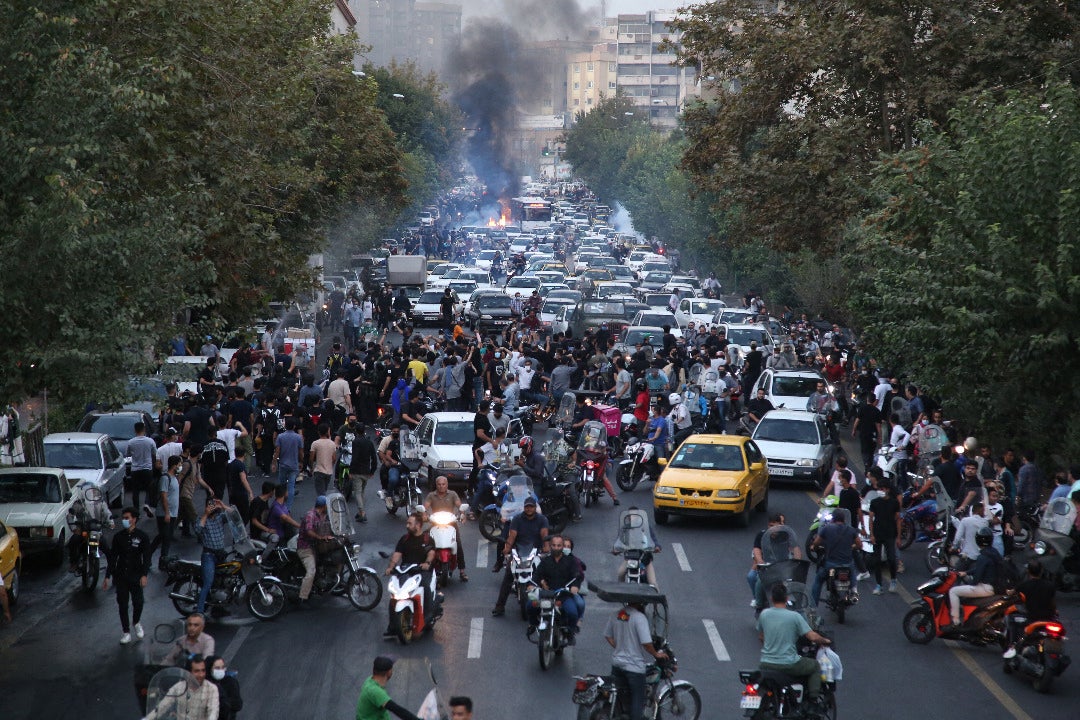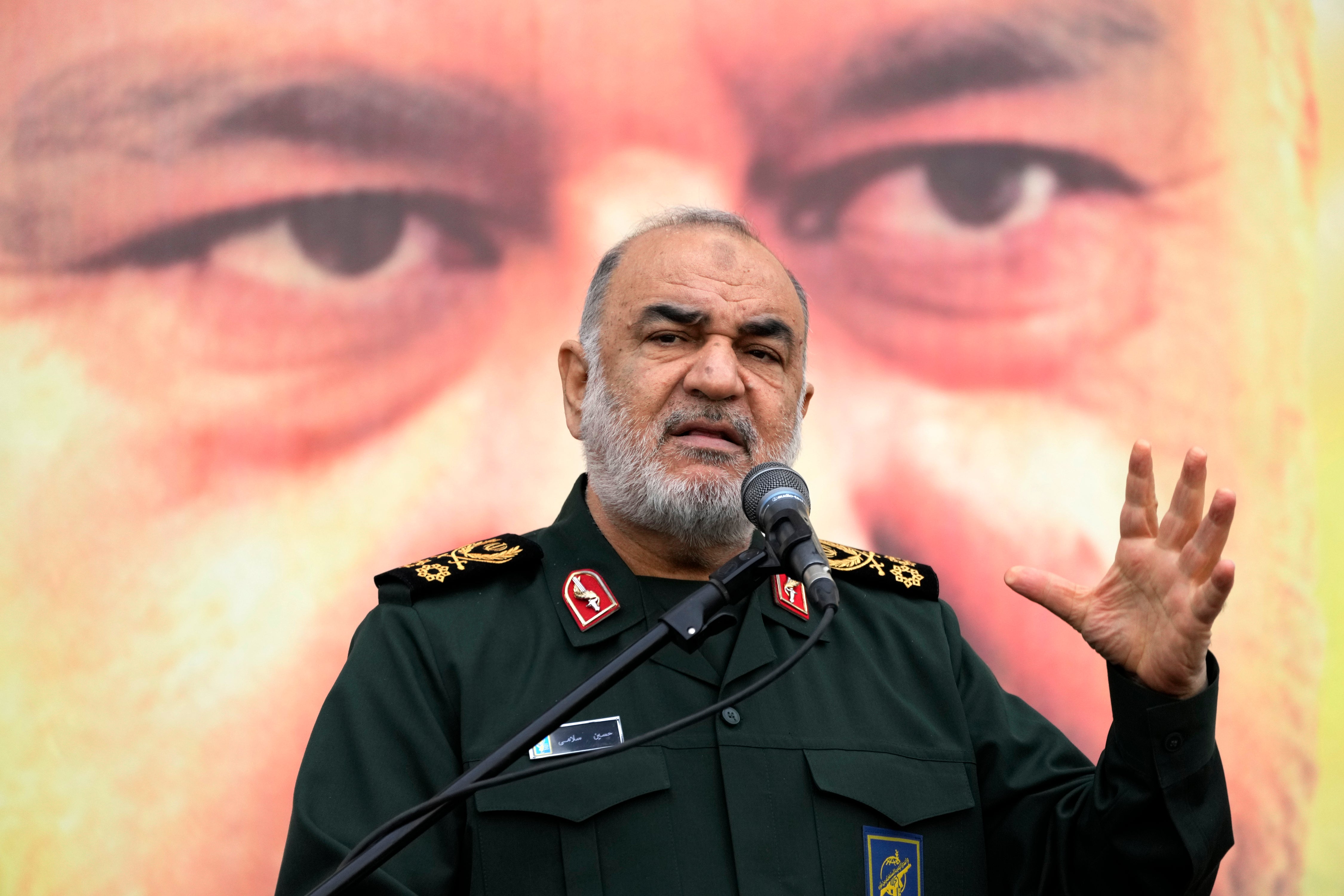“When are the Americans coming to save us from these mullahs?” my fellow Iranians would ask when I started my journalism career in Tehran some 22 years ago.
That was just before the Middle East was transformed by the US’s reverse Midas touch.
Within a few years Iraq, Afghanistan and Libya had been reduced to rubble and ruin at the hands of US intervention.
So salvation from the clerics shrank to two options: reform from within or revolt. Iran’s hardline conservatives in charge would not abide either.
Just as the Green Movement’s promises of rights and rapprochement with the West seemed within reach, they were predictably extinguished, along with every ember of dissent that has come before and after.
The closest Iranians came to change was three years ago, when the country erupted into mass protests sparked by the morality police’s killing of a young Kurdish-Iranian woman, Mahsa Amini.

It was the biggest uprising since the 1979 revolution. The regime had never appeared so vulnerable, or so aware of its frailty, as revealed by an internal missive meant for IRGC top brass but leaked to the world by hackers.
The short bulletin revealed a flailing apparatus with a micromanaging Supreme Leader at the helm, disdainful of timorous officials.
It concluded that with three quarters of the population supporting the protests, the country was in a state of revolution.
This unprecedented situation demanded an unprecedented response: protesters were blinded, arrested, raped, tortured, and executed in a brutal wave of violence that has not ended.
It was no surprise, then, that the first couple of days after Israel’s unexpected attack were met with as much optimism as trepidation – as well as humour.
One meme showed IRGC commander-in-chief Hossein Salami alongside a picture of his namesake sausage with the heading “Salami becomes salami”. Messages of thanks to ‘Dear Bibi’ were posted on social media.
But as the death toll rose – hundreds of civilians have been killed so far, and thousands injured – hope turned to terror.

I’ve spent the last two decades covering the Middle East, and the last 20 months investigating Israel’s war crimes in Gaza and its increasing violence against Palestinians in the West Bank.
Spoiler alert – despite Dear Bibi’s protestations he is saving the Persian people, Israel’s intentions in Iran are not altruistic. And it’s not just Israel’s ethnic cleansing of Palestinians that leaves a bad taste in the mouth.
Israel’s dismantling of the rules-based world order – executed with the same callous disregard as its killing of Palestinians – may have eased its journey to attacking Iran, but the road to this bombing campaign was paved long ago.
Journalists of my generation did not need the latest US intelligence to debunk Israel’s claim it attacked Iran because the mullahs were months away from acquiring a nuclear weapon.
I’ve covered Israel’s histrionic warnings about Iran’s imminent nuclear bomb too many times over the years.
According to Israel, Iran has been months away from a bomb for, well, hundreds of months. Even my bad maths knows Israel’s timeline doesn’t add up.
For as long, Israel has been drawing from the colonial script of divide and rule to ensure its dream of a fragmented, conflict-riddled Middle East becomes a reality.

Israeli medics stitched up Sunni fighters, including extremist Islamists, during the Syrian war. It has long supported Kurdish rebels. It is now using the Druze to stoke up ethnic tensions in Syria.
And so, Israel’s desire for my motherland is an Iran unravelled, its fabric shredded along ethnic lines, a nation undone by design - another carefully engineered fracture in the region.
With the regime hanging so many of its citizens from nooses across the country, our pain was primed for Israel’s exploitation. The ethnic minorities bore the brunt of the regime’s butchery; Baluchis, Ahvazis and Kurds had their own axes to grind, and Israel offered the whetstone.
Now, Iran’s Supreme Leader Ali Khamenei is a cornered rat with nowhere to go. His best chance at survival would be to evoke his spiritual superior and the regime’s architect, Ayatollah Khomeini.
In 1988, the war with Iraq was ended when Khomeini announced a ceasefire, saying he had been forced to drink the ‘poisoned chalice’. But it is unlikely that Khamenei will do the same.
As black smoke rises over my beloved city Tehran, I fear civil war. I hope I am wrong, and that Israel will be satisfied with a unified Iran with a puppet leadership; another client state of the USA ready to trade underpriced oil. Loss of dignity a small price to pay for peace.
But I am old enough also to know how that story ends… and so the cycle will continue. One thing I am sure about is that it is not for me, nor my fellow compatriots in the diaspora who have spent most of our lives in safety and security, to decide the fate of our nation.
It is for my fellow Iranians who survived the Iran-Iraq war, who have survived the regime’s savagery, to decide.
Ramita Navai is a journalist, documentary maker and the author of City of Lies: Love, Sex, Death and the Search for Truth in Tehran






